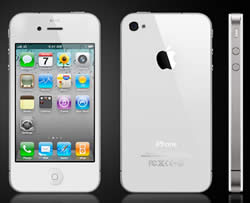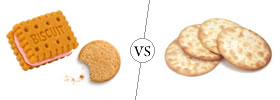Difference between Sony Xperia P and iPhone 4S
Key difference: Sony Xperia P features a 4-inch TFT touch screen that allows up to 4-touch capabilities. The screen is scratch resistant and has a shatter proof coating. The touch screen provides approximately 275 ppi pixel density along with WhiteMagic technology, which adds an extra white pixel with the already present red, blue and green. The iPhone 4S was an update that was released after much anticipation in October 2011. It was the fifth generation of the iPhone and succeeded the iPhone 4. In terms of appearance, the phone resembles the iPhone 4 in many ways.
 Sony is a prominent technology company and is known best for its electronics such as phones, TVs, gaming systems, etc. The constant dynamic nature of technology ensures that we always have a better and more forward technology than the one we had a month ago. The price of this dynamic technology is also high, the constant updating of technology requires people have that much cash on hand. However, many companies such as Sony know that not many people have that much cash on hand for disposal, hence has launched mid-range phones such as Xperia P that allows the people to experience the best of both worlds: technology and affordable pricing. The Xperia P was launched in May 2012 and continues to be a major player in the market.
Sony is a prominent technology company and is known best for its electronics such as phones, TVs, gaming systems, etc. The constant dynamic nature of technology ensures that we always have a better and more forward technology than the one we had a month ago. The price of this dynamic technology is also high, the constant updating of technology requires people have that much cash on hand. However, many companies such as Sony know that not many people have that much cash on hand for disposal, hence has launched mid-range phones such as Xperia P that allows the people to experience the best of both worlds: technology and affordable pricing. The Xperia P was launched in May 2012 and continues to be a major player in the market.
Sony Xperia P features a 4-inch TFT touch screen that allows up to 4-touch capabilities. The screen is scratch resistant and has a shatter proof coating, allowing the screen to endure minor scratches and everyday scuffs without sacrificing on the quality. The touch screen provides approximately 275 ppi pixel density, though not the best ppi compared to the heavy contenders but the quality of the screen is not sacrificed. This is mostly because of the company’s WhiteMagic technology, which adds an extra white pixel with the already present red, blue and green. The extra pixel generates a higher level of brightness that does not cloud the phone when using it under direct sunlight.
The phone is a little bulky in nature, but it is easy to become accustomed to when holding it for longer periods of time. The phone is also a little heavier compared to similar phones, but again not something that lets the user forget of the other great features of the phone. The phone is encased in a plastic chassis, which is quite smooth to hold but is also prone to many visible scratches and chips. The device has a clear plastic border on the front that also doubles as a cover up for the antenna. Above the plastic border reside the Home button, back button and Menu button. The power button, the volume rocker and the physical camera button is on the right side of the device, while the left sides hosts a variety of ports including the SIM card slot.
Under the hood, the device is powered by 1 GHz Dual-core processor and hosts the company’s Timescape UI. The user interface is quite smooth and does not glitch when shifting between the screens and the apps. The device runs on 1 GB RAM and comes with an internal storage capacity of 16 GB. Of the 16 GB, only 13 GB is available to the user and it is not expandable. The device houses an 8 MP Autofocus rear camera and a VGA (0.3 MP) front camera, which is a little bit of a letdown. The Exmor R technology ensures that the rear camera provides sharp, clear images, while the front camera does not live up to the same quality. Though initially powered by Android v2.3, the device is now available with Android v4.0, which no status as of yet for v4.1 upgrades. The phone also comes with additional features such as Motion gaming, MobiSystems’ OfficeSuite 5, Wi-Fi hotspot, DLNA, USB On-the-go, Native USB tethering and NFC capabilities. The Xperia P houses a non-removable 1305 mAh battery, which provides a decent battery life and lasts almost a day. With the amount of features that are offered with the phone, the price tag is expected to be quite high; however, the price is quite affordable and will not make that much of a dent in the user’s pocket.
 Though, Apple originally was assumed to have the most technologically innovative products, many other companies have stepped in to give it good competition. The Apple Company still has maintained a good standing ground in terms of innovation and technology. Apple has also successfully built a loyal fan base that is willing to purchase phones and tablets only by Apple and stand by their products a 100%. The iPhone 4S is the successor of iPhone 4 and was one of the most famous iPhones before the launch of iPhone 5.
Though, Apple originally was assumed to have the most technologically innovative products, many other companies have stepped in to give it good competition. The Apple Company still has maintained a good standing ground in terms of innovation and technology. Apple has also successfully built a loyal fan base that is willing to purchase phones and tablets only by Apple and stand by their products a 100%. The iPhone 4S is the successor of iPhone 4 and was one of the most famous iPhones before the launch of iPhone 5.
The iPhone 4S was an update that was released after much anticipation in October 2011. It was the fifth generation of the iPhone and succeeded the iPhone 4. In terms of appearance, the phone resembles the iPhone 4 in many ways. However, it has gained a few pounds in weight. The iPhone 4S offers improved hardware and software systems compared to its predecessors. The iPhone 4S retains the 3.5-inch LED-backlit IPS LCD, capacitive touchscreen along with the pixels. It weighs around 140 grams. The iPhone 4S also supported CDMA versions. The iPhone 4S was the first iOS device to offer a dual-core processor and was offered with the new iOS 5, which is now upgradeable to iOS 6.1.
The phone is available with non-expandable 16, 32 or 64 GB internal storage capacity. It also upped the primary camera to 8 MP and bettered the video recording quality with additional features. One of the primary features that Apple launched with the 4S was Siri, Apple’s speech recognition software. It allowed users to control the phone using vocal commands and allowed the software to retain answers making it eerily human like. Siri was one of the main reasons for many people upgrading to the 4S. The 4S also offered a faster dual-core processor, more RAM and a slightly better battery. However, the faster processor sacrificed some standby time on the phone.
The information for the detailed table about the two phones has been taken from Sony Mobile website, expertreviews.co.uk, Apple website and GSMArena.com.
|
|
Sony Xperia P |
iPhone 4S |
|
Launch Date |
May 2012 |
October 2011 |
|
Company |
Sony |
Apple Corporation |
|
Size |
122 x 59.5 x 10.5 mm |
115.2 x 58.6 x 9.3 mm |
|
Display |
4-inch scratch-resistant TFT touchscreen |
3.5 inches LED-backlit IPS LCD, capacitive touchscreen, |
|
Screen |
960 x 540 pixels (~275 ppi pixel density), 16 million colors |
640 x 960 pixels, (~330 ppi pixel density) 16M colors |
|
Protection |
Scratch-resistant, shatter proof sheet on mineral glass |
Corning Gorilla Glass, oleophobic coating |
|
Weight |
120 grams |
140 g |
|
2G Network |
GSM GPRS/EDGE 850, 900, 1800, 1900 |
GSM 850 / 900 / 1800 / 1900 CDMA 800 / 1900 |
|
3G Network |
UMTS HSPA 850, 900, 1900, 2100 |
HSDPA 850 / 900 / 1900 / 2100 CDMA2000 1xEV-DO |
|
4G Network |
N/A |
N/A |
|
GUI |
Timescape UI |
IUI |
|
CPU speed |
1 GHz Dual core processor |
1 GHz Dual-core Cortex-A9 |
|
GPU |
Adreno 205 |
PowerVR SGX543MP2 |
|
OS |
Android OS, v2.3 (Gingerbread), v4.0 (Ice Cream Sandwich), planned upgrade to v4.1 (Jelly Bean) |
iOS 5, upgradable to iOS 6.1 |
|
Chipset |
NovaThor U8500 |
Apple A5 |
|
RAM |
1GB |
512 MB |
|
SIM Size |
microSIM |
microSIM |
|
Internal Memory |
16 GB (13 GB accessible to the user) |
16/32/64 GB |
|
Expandable Memory |
N/A |
No |
|
Sensors |
Accelerometer, Proximity sensor, Ambient light sensor, Magnetometer and Gyroscope |
Accelerometer, three-axis gyro, proximity, compass, ambient light sensor. |
|
Connectivity |
USB High speed 2.0 and Micro USB support, WiFi and WiFi Hotspot functionality, HDMI Support, DLNA Certified, Synchronisation via Exchange ActiveSync, Google Sync and Facebook, aGPS, WebKit web browser with Pan & zoom, Bluetooth technology, Native USB tethering and NFC. |
Wi-Fi 802.11 b/g/n, Wi-Fi hotspot, Bluetooth v4.0 with A2DP, micro-USB v2.0. |
|
Data |
GPRS, EDGE, WLAN, Bluetooth, NFC, USB. |
GPRS, EDGE, WLAN, Bluetooth and USB. |
|
Speed |
GSM GPRS Up to 100 kbps; GSM EDGE Up to 296 kbps; UMTS HSPA cat 6 (upload) Up to 5.6 Mbps; UMTS HSPA cat 10(download) Up to 14.4 Mbps |
HSDPA, 14.4 Mbps; HSUPA, 5.8 Mbps |
|
WLAN |
Wi-Fi 802.11 b/g/n, Wi-Fi hotspot, DLNA |
Wi-Fi 802.11 b/g/n, Wi-Fi hotspot |
|
Bluetooth |
Bluetooth v2.1 with A2DP, EDR |
Bluetooth v4.0 with A2DP |
|
USB |
microUSB v2.0, USB On-the-go |
micro-USB 2.0. |
|
Primary Camera |
8 MP 3264x2448 pixels rear camera |
8 MP, 3264x2448 pixels, autofocus, LED flash |
|
Secondary Camera |
VGA front camera |
VGA, 480p@30fps, videocalling over Wi-Fi and 3G |
|
Video |
HD video recording (1080p) |
1080p@30fps, LED video light, video stabilization, geo-tagging |
|
Camera Features |
|
|
|
Sound Enhancement |
xLOUD Experience Clear bass and clear stereo |
No |
|
Audio supported formats |
MP3, 3GPP, MP4, SMF, WAV, OTA, Ogg vorbis |
Audio formats supported: AAC (8 to 320 Kbps), Protected AAC (from iTunes Store), HE-AAC, MP3 (8 to 320 Kbps), MP3 VBR, Audible (formats 2, 3, 4, Audible Enhanced Audio, AAX, and AAX+), Apple Lossless, AIFF, and WAV |
|
Video supported formats |
3GPP, MP4 |
Video formats supported: H.264 video up to 1080p, 30 frames per second, High Profile level 4.1 with AAC-LC audio up to 160 Kbps, 48kHz, stereo audio in .m4v, .mp4, and .mov file formats; MPEG-4 video up to 2.5 Mbps, 640 by 480 pixels, 30 frames per second, Simple Profile with AAC-LC audio up to 160 Kbps per channel, 48kHz, stereo audio in .m4v, .mp4, and .mov file formats; Motion JPEG (M-JPEG) up to 35 Mbps, 1280 by 720 pixels, 30 frames per second, audio in ulaw, PCM stereo audio in .avi file format |
|
Battery Capacity |
Non-removable Li-Ion 1305 mAh battery |
Non-removable Li-Po 1432 mAh battery (5.3 Wh) |
|
Talk time |
2G: 6 hours 3G: 5 hours |
2G: 14 hours 3G: 8 hours |
|
Stand-by |
2G: 470 hours 3G: 475 hours |
2G/3G: 200 hours |
|
Available Colors |
Black, Silver, Red |
Black, White |
|
Messaging |
SMS (threaded view), MMS, Email, IM, Push Email |
iMessage, SMS (threaded view), MMS, Email, Push Email |
|
Browser |
HTML5, Adobe Flash |
HTML (Safari) |
|
Radio |
FM Radio with RDS |
No |
|
GPS |
GPS with A-GPS support |
A-GPS support |
|
Java |
Java via Java MIDP emulator |
No |
|
Additional Features |
|
|
Image Courtesy: sonymobile.com, clickbd.com









Add new comment